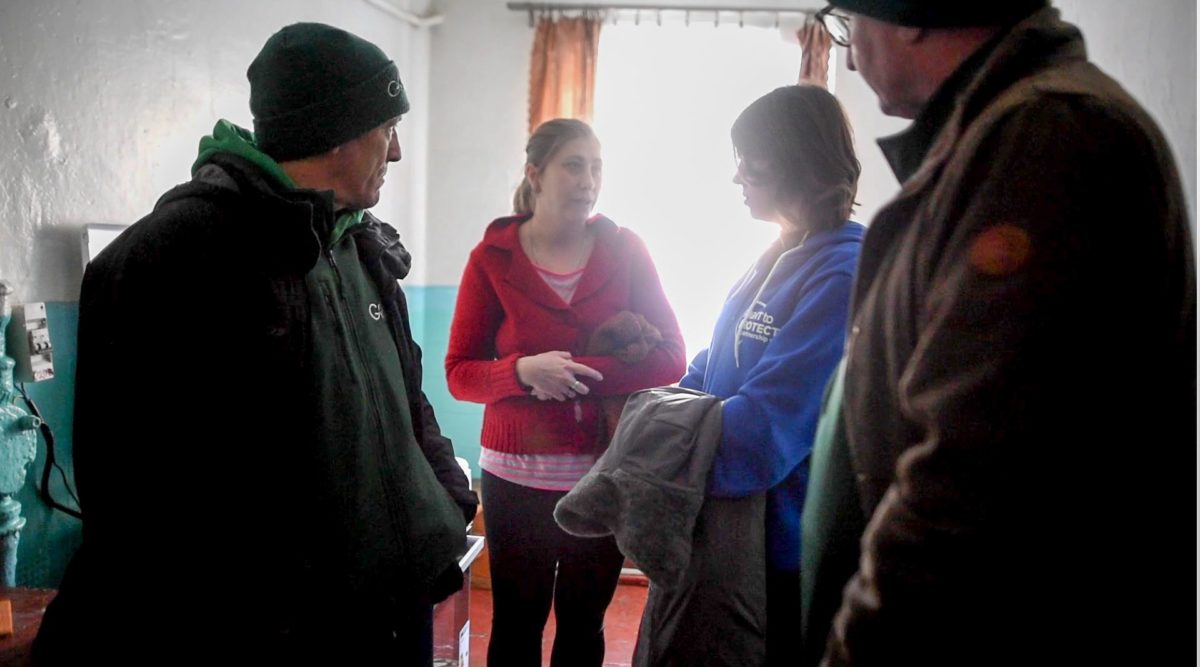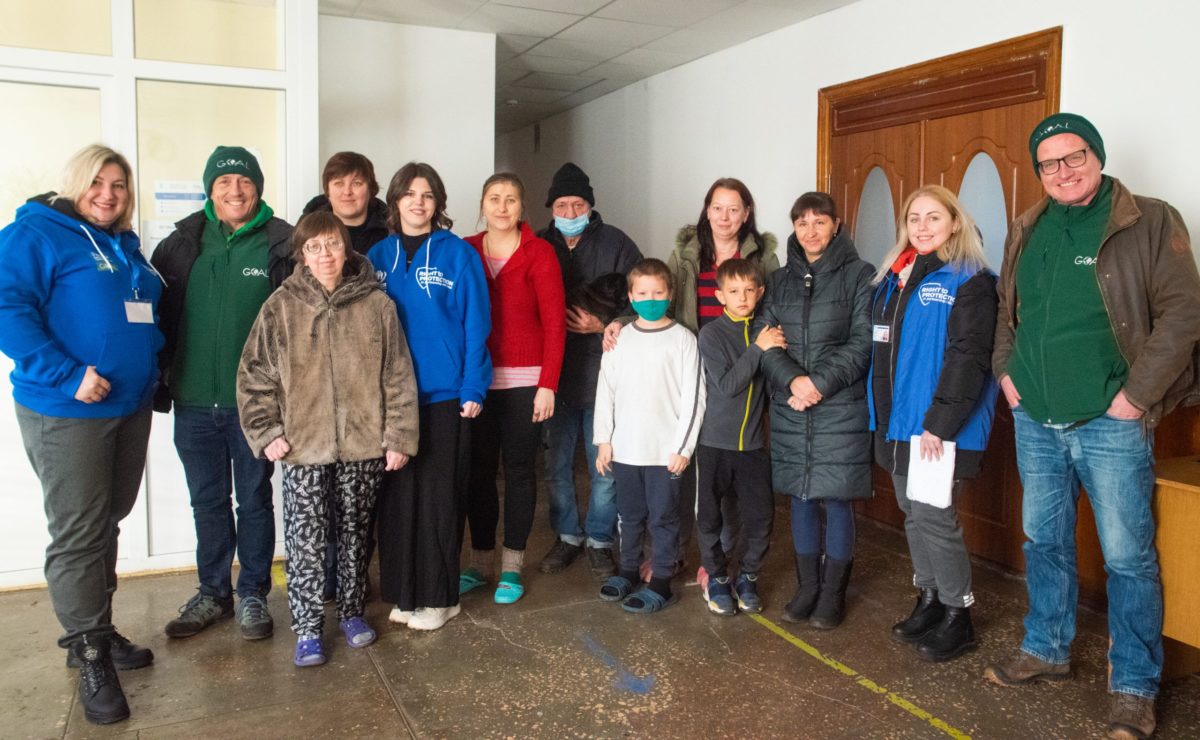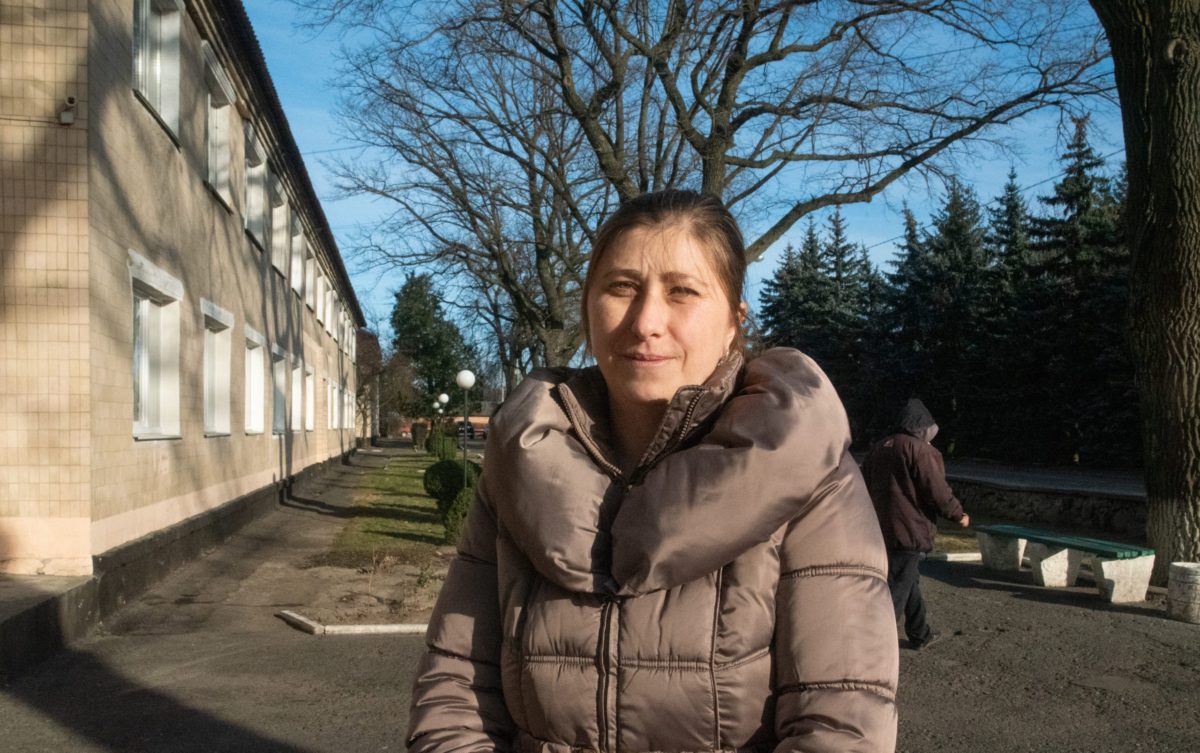 Stories
Stories
December 15, 2022 • 4 min read
Julia, 39, is from Mykolaivka, a small town in the Donetsk Oblast (province) of eastern Ukraine. She lived happily and peacefully with her family until conflict broke out in 2014.
“I lived in an apartment building which was damaged by the conflict in Donbas in 2014. When things started again in February, we were afraid that if more bombs would come, the building would not survive. We had no choice but continue to live there”
While Julia got used to frequent shelling in the region, she had a close escape in May.
“I was working in the electricity plant when one afternoon my colleagues and I were suddenly told to prepare to go home mid-shift. On the way home, shells began to hit the ground around our bus. It was terrifying.“
Having shells land so near to her and then seeing her workplace on fire in the distance, Julia decided that this was the last straw and decided to leave. She managed to get home and told her mother, Kateryna (70), and daughter, Diana (18), to pack their things – they were leaving. She made the difficult journey west in an extremely uncertain time for her and her family, leaving their home and everything behind.
Challenging Living Conditions
“When we first arrived here in Lubny, we were put into a local school which was closed, as most were in the country at the time. There were 16 families there, and it was quite comfortable. More people kept coming, however, and then in September, when school began to start again, we were moved to older buildings on the grounds.”

Julia (second from left) highlighting challenging living conditions with Right To Protection and GOAL teams.
She now lives with her daughter and mother in a small bedroom in old Soviet-era school buildings re-purposed as a temporary displacement center. Two small kitchens and bathrooms are shared by many families, who have to work together to ensure facilities are accessed equally.
Since November, residents only have electricity for just two hours a day. To add to their discomfort, there is no warm water in the building. To shower, wash dishes or clothes, gas stoves are used to heat water.
The manager of the center, Galyna, a local woman from the town, works tirelessly to try to meet people’s needs. Unfortunately, resources are extremely limited as the war continues.
Over 6.5 million people have been displaced due to the conflict in Ukraine, now in its ninth month. Some displaced families are able to rent houses in safer areas of the country, while others stay with relatives. Many, like Julia and her family, have nowhere else to go but displacement centers like in Lubny.

Residents of the displacement center in Lubny with Right To Protection and GOAL teams.
“It’s quite ok here,” Julia says, “and we are grateful for the support, but because of the lack of enough heating, it’s getting very cold in the building. We have mould growing on the walls, which is causing illnesses already. We’re afraid the living situation will get worse as it gets colder outside. It is just the start of winter and already it is too cold.“
GOAL Response In Ukraine
Within days of the Russian invasion, GOAL teams were on the ground in Poland and Western Ukraine, distributing food and non-food items such as hygiene kits, clothes and blankets to families fleeing the conflict.
Working with a Ukrainian partner organization, Right To Protection, GOAL has now embarked on a larger program, offering legal and personal rights’ advice to internally displaced people, to ensure they are aware of their entitlements and protections following the loss of homes and livelihoods, as well as where to access critical services.
GOAL and Right To Protection are providing these services in temporary shelters across Ukraine; in Kyiv, Cherkasy, Chernihiv, Poltava and Sumy oblasts. GOAL has also delivered over 30 generators and over 100 electric heaters to provide power and heat for temporary displacement centers in a number of regions, including recently in Kharkiv, where near-daily shelling continues.

Julia outside the displacement center in Lubny.
Hope to Return Home
Julia would like to relocate her family to better accommodation, but knows there are few alternatives at the moment.
“For now, we live here. I feel I should have nothing to complain about because we are at war and people are experiencing much worse than this. I am ready to endure these conditions until we win the war, when I can get back home, if that is ever going to be an option.”
“After shelter and meals, hygiene products in particular have been a big support, as these can be costly. I am very thankful for any help people are giving until I can hopefully go home one day.”
